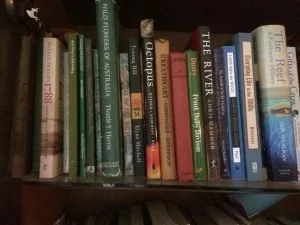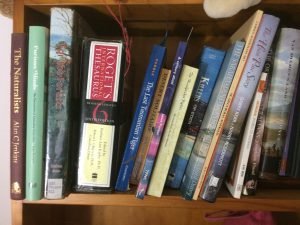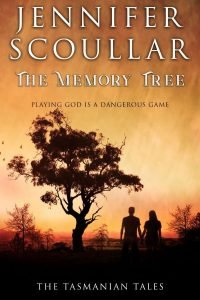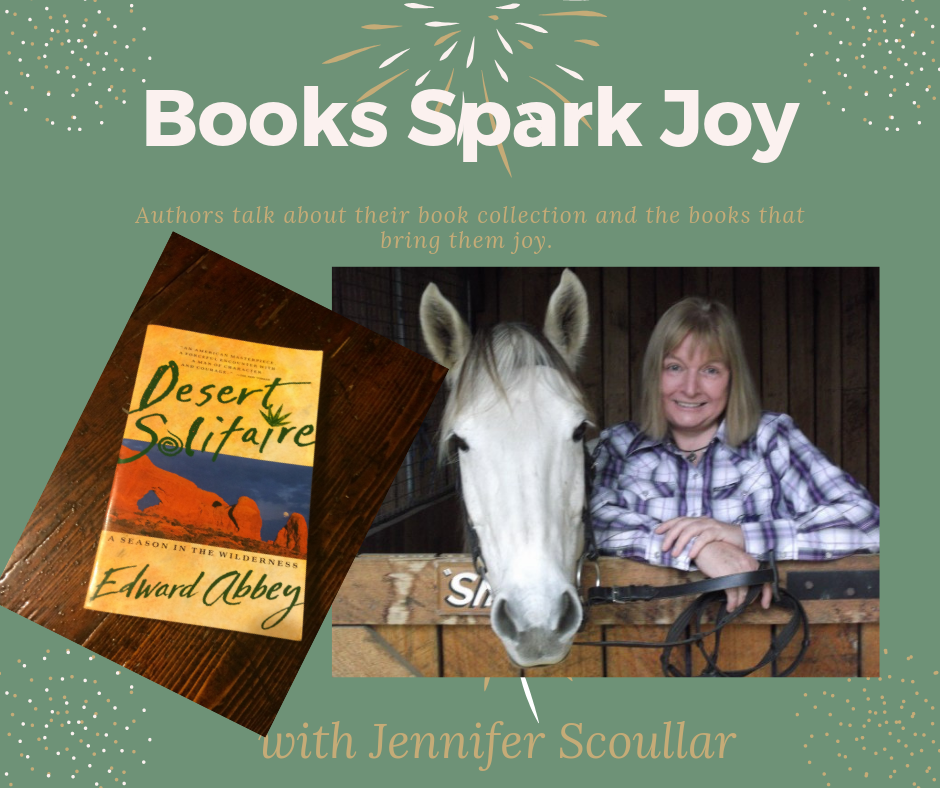Books Spark Joy with Jennifer Scoullar
This week on Books Spark Joy, meet Jennifer Scoullar. Jennifer writes Australian Fiction with an environmental message. She began writing as a child after reading Elyne Mitchell's The Silver Brumby. After a career in law Jennifer picked up her pen and began writing again, an experience she describes as 'coming home'. She lives with her family at Pilyara, a beautiful property in the mountains that was left to her by her father.
Over to Jennifer ...There’s an old saying that goes, ‘A home without books is like a room without windows.’ My books live all over the house. There isn’t one room without overflowing shelves, looking like an overstocked secondhand bookshop. That said, I’m not a hoarder, and do cull old books occasionally. I’m also happy to lend books ‒ which is a back door way of culling, because I never get them back ?There is some method to my madness, and I have a rough organisational structure to my library. I keep classic literary fiction in the lounge room. Some tragic tales I may never return to, especially the ones where the lovers die, then the family dies, then the whole village dies. I’m a sucker for a happy ending. I’m also unlikely to re-read incomprehensible books like Finnegan’s Wake, The Sound And The Fury and Tristram Shandy, or historical set pieces by Jane Austen and Thomas Hardy. But there are other classics that continue to inspire me. Thoreau’s Walden is a masterpiece. Authors like John Steinbeck and Mark Twain are perennial favourites, as are Australian women writers such as Henry Handel Richardson, Miles Franklin and Nancy Cato.  My childhood favourites live in the spare room: The Silver Brumby books, A Wrinkle In Time, Pony Jobs for Jill, etc. Dusty cookbooks are in the family room. I hardly have time to cook. The kids are grown up and can fend for themselves. Aussie rural books are also in the lounge room, occupying one of those old-fashioned rotating timber book shelves. I have shelves of books by favourite contemporary authors such as Barbara Kingsolver and Inga Simpson.The office, where I write, is home to my non-fiction collection of which I’m quite proud. Along with writing and reference books, I own an extensive library of natural history books on everything from Australian native orchids to extinct megafauna.
My childhood favourites live in the spare room: The Silver Brumby books, A Wrinkle In Time, Pony Jobs for Jill, etc. Dusty cookbooks are in the family room. I hardly have time to cook. The kids are grown up and can fend for themselves. Aussie rural books are also in the lounge room, occupying one of those old-fashioned rotating timber book shelves. I have shelves of books by favourite contemporary authors such as Barbara Kingsolver and Inga Simpson.The office, where I write, is home to my non-fiction collection of which I’m quite proud. Along with writing and reference books, I own an extensive library of natural history books on everything from Australian native orchids to extinct megafauna.  Current reads are in the bedroom, along with my TBR shelf. I like to have both a fiction and non-fiction book on the go at any time. At the moment I’m reading Eucalyptus by Murray Bail and the chilling The Vandemonian War by Nick Brodie. I’m also an enthusiastic ebook reader, with almost a thousand titles on my Kindle. I love the instant gratification of seeing a book and then having it ready to read within seconds. It’s magic! It’s also a godsend when I’m traveling, rather than carting round a heavy suitcase.Some books spark a rush of joy simply by holding them ‒ Desert Solitaire by Edward Abbey, for example. Written fifty years ago, it’s an account of Abbey’s life during three seasons as a park ranger in Utah. I intentionally read this book slowly so I can savour each word. To read Desert Solitaire is to experience nature in its purest form. It is also the heartfelt cry of a man ahead of his time, challenging the growing exploitation of wilderness by mining interests, as well by the tourist industry. Abbey was one of the last humans to see Glen Canyon before it disappeared under the waters of Lake Powell; that one section alone is worth the price of this masterpiece. My upcoming September release, The Memory Tree, is in part inspired by this book.
Current reads are in the bedroom, along with my TBR shelf. I like to have both a fiction and non-fiction book on the go at any time. At the moment I’m reading Eucalyptus by Murray Bail and the chilling The Vandemonian War by Nick Brodie. I’m also an enthusiastic ebook reader, with almost a thousand titles on my Kindle. I love the instant gratification of seeing a book and then having it ready to read within seconds. It’s magic! It’s also a godsend when I’m traveling, rather than carting round a heavy suitcase.Some books spark a rush of joy simply by holding them ‒ Desert Solitaire by Edward Abbey, for example. Written fifty years ago, it’s an account of Abbey’s life during three seasons as a park ranger in Utah. I intentionally read this book slowly so I can savour each word. To read Desert Solitaire is to experience nature in its purest form. It is also the heartfelt cry of a man ahead of his time, challenging the growing exploitation of wilderness by mining interests, as well by the tourist industry. Abbey was one of the last humans to see Glen Canyon before it disappeared under the waters of Lake Powell; that one section alone is worth the price of this masterpiece. My upcoming September release, The Memory Tree, is in part inspired by this book.  My bookshelves undoubtedly tell the story of my life, brimming as they are with works about animals and the natural world. This passion is reflected in my own writing. Most of us live lives so far removed from the elemental, that we rarely even touch the earth. We delude ourselves that we are somehow immune to and separate from nature. But at what cost? The cost to our declining environment? The cost to our hearts? The world is hungry to re-engage with nature, to ground itself. Jon Krakauer’s Into The Wild tapped into this vein. The wildly successful movie Avatar does the same.I am proud to be part of an emerging Australian genre of eco-fiction, in the esteemed company of the likes of Richard Flanagan, Charlotte Wood and Annie Seaton. To lose touch with wildness is to lose touch with ourselves. You can connect with Jennifer hereWebsite: https://jenniferscoullar.comTwitter: https://twitter.com/JenScoullarFacebook: https://www.facebook.com/AuthorJenScoullar
My bookshelves undoubtedly tell the story of my life, brimming as they are with works about animals and the natural world. This passion is reflected in my own writing. Most of us live lives so far removed from the elemental, that we rarely even touch the earth. We delude ourselves that we are somehow immune to and separate from nature. But at what cost? The cost to our declining environment? The cost to our hearts? The world is hungry to re-engage with nature, to ground itself. Jon Krakauer’s Into The Wild tapped into this vein. The wildly successful movie Avatar does the same.I am proud to be part of an emerging Australian genre of eco-fiction, in the esteemed company of the likes of Richard Flanagan, Charlotte Wood and Annie Seaton. To lose touch with wildness is to lose touch with ourselves. You can connect with Jennifer hereWebsite: https://jenniferscoullar.comTwitter: https://twitter.com/JenScoullarFacebook: https://www.facebook.com/AuthorJenScoullar

